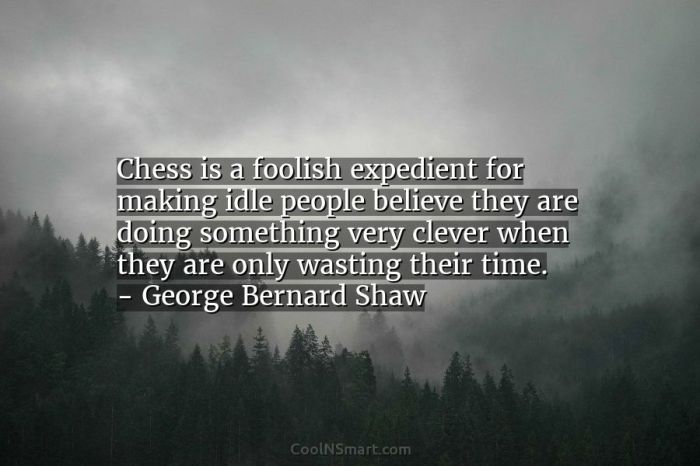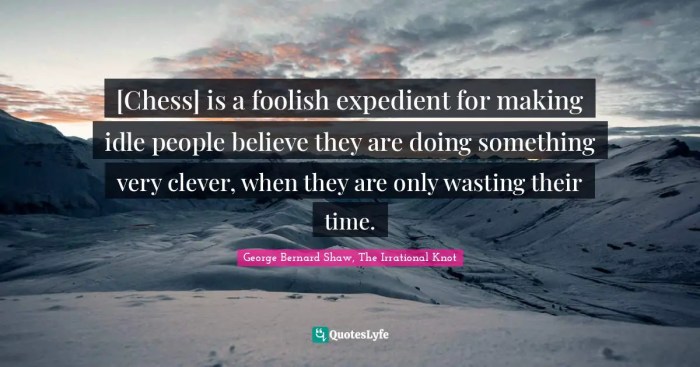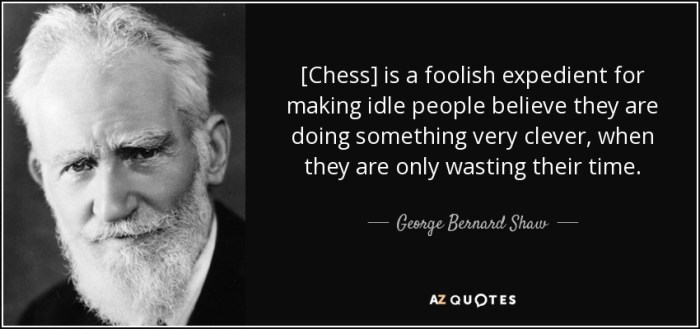A foolish expedient for making is a phrase that captures the allure and danger of quick and easy solutions. Throughout history, people have been tempted by the promise of effortless gains, often with disastrous consequences. This phrase serves as a cautionary tale, reminding us to think critically about the long-term implications of our actions.
From ancient fables to modern-day case studies, the consequences of relying on foolish expedients are well-documented. Whether it’s cutting corners in construction or taking shortcuts in financial planning, the pursuit of immediate gratification can lead to costly mistakes.
Historical Origins and Context: A Foolish Expedient For Making

The phrase “a foolish expedient for making” has a long and varied history, dating back to the early days of human civilization. In ancient Greece, the philosopher Plato used the phrase to describe the actions of those who sought to achieve their goals through deception and trickery.
During the Middle Ages, the phrase was often used to criticize the actions of the Church. Many people believed that the Church was using its power and influence to gain wealth and power, rather than to help the poor and needy.
In the 19th Century
In the 19th century, the phrase “a foolish expedient for making” was used to describe the actions of those who sought to make money through speculation and other risky ventures.
Literary and Cultural References

The phrase “a foolish expedient for making” has appeared in various literary works and cultural artifacts throughout history. It often serves as a commentary on the futility or shortsightedness of certain actions.
In Shakespeare’s play King Lear, the phrase is uttered by the Fool in reference to Lear’s decision to divide his kingdom among his daughters. The Fool’s use of the phrase suggests that Lear’s actions are unwise and will ultimately lead to disaster.
Gulliver’s Travels
In Jonathan Swift’s satirical novel Gulliver’s Travels, the phrase is used to describe the Lilliputians’ attempt to capture Gulliver by tying him down with thousands of tiny threads. The phrase highlights the absurdity and futility of their plan, as Gulliver easily breaks free.
The Catcher in the Rye
In J.D. Salinger’s novel The Catcher in the Rye, the phrase is spoken by the protagonist, Holden Caulfield, in reference to his own behavior. Holden’s use of the phrase reveals his self-awareness and his recognition of the foolishness of his actions.
A foolish expedient for making anything is to try to do it without the proper knowledge or resources. If you’re looking for the cpi post test answer key 2023 , for example, it would be unwise to guess at the answers without studying the material.
Instead, take the time to prepare so that you can increase your chances of success. This applies to any task, big or small. Don’t try to cut corners; it will only lead to frustration and wasted effort.
Symbolic Significance
In these literary works, the phrase “a foolish expedient for making” serves as a symbol of the futility of shortsighted or impulsive actions. It suggests that such actions are often doomed to failure and can have unintended consequences.
Philosophical and Ethical Implications

The practice of “a foolish expedient for making” raises significant philosophical and ethical concerns. It hinges on the notion of sacrificing long-term integrity and sustainability for immediate gratification, which has far-reaching consequences for individuals and society as a whole.
One of the primary ethical implications lies in the potential for deception and exploitation. By resorting to quick fixes, individuals may engage in unethical or illegal practices to achieve their goals. This can erode trust and damage relationships, as well as undermine the rule of law and societal norms.
Short-Term Gains vs. Long-Term Consequences
The tension between short-term gains and long-term consequences is a central ethical dilemma associated with “a foolish expedient for making.” While quick fixes may provide temporary relief or benefits, they often come at the expense of future well-being.
For example, excessive consumption of unhealthy foods for immediate gratification can lead to long-term health issues, while cutting corners in construction to save money may result in structural failures and safety hazards down the line.
The pursuit of short-term gains can also lead to a culture of irresponsibility and a lack of accountability, as individuals prioritize immediate gratification over long-term sustainability.
Examples and Case Studies

Throughout history, many instances have demonstrated the detrimental consequences of resorting to “a foolish expedient for making.” These examples provide valuable lessons about the pitfalls of prioritizing short-term gains over long-term consequences.
The following table presents a selection of real-world case studies that illustrate the negative effects of such expedients:
Case Studies
| Situation | Expedient Used | Consequences | Lessons Learned |
|---|---|---|---|
|
Financial Crisis of 2008 |
Subprime mortgage lending |
Economic collapse, widespread foreclosures, loss of trust in financial institutions |
The pursuit of short-term profits through risky lending practices can lead to systemic instability. |
|
Climate Change |
Burning fossil fuels for energy |
Rising sea levels, extreme weather events, environmental degradation |
Ignoring the long-term consequences of environmental actions can have severe repercussions for future generations. |
|
Political Polarization |
Using divisive rhetoric and misinformation |
Social unrest, erosion of trust in institutions, inability to address complex issues |
Appealing to emotions and exploiting fears for short-term political gains can undermine social cohesion and long-term stability. |
These case studies reveal common patterns:
- The prioritization of immediate gratification over long-term consequences
- The failure to consider the potential risks and unintended consequences of actions
- The erosion of trust and the undermining of social cohesion
These lessons underscore the importance of careful consideration, long-term planning, and responsible decision-making to avoid the pitfalls of “a foolish expedient for making.”
Alternative Approaches

The pursuit of quick and easy solutions can often lead to unintended consequences. To avoid the pitfalls of “a foolish expedient for making,” it is essential to consider alternative approaches that prioritize sustainability and effectiveness.
These alternative approaches offer a more comprehensive and nuanced understanding of decision-making and problem-solving, enabling individuals and organizations to make informed choices that lead to long-term success.
Systems Thinking
- Advantages:Considers the interconnectedness of systems, allowing for a comprehensive analysis of problems and their potential solutions.
- Disadvantages:Can be complex and time-consuming, requiring a deep understanding of the system’s dynamics.
Root Cause Analysis
- Advantages:Identifies the underlying causes of problems, preventing recurrence and leading to more effective solutions.
- Disadvantages:Can be challenging to determine the root cause, especially in complex systems.
Design Thinking
- Advantages:Emphasizes user-centered design, leading to solutions that meet the needs of stakeholders.
- Disadvantages:Can be iterative and time-consuming, requiring multiple rounds of testing and feedback.
Adaptive Management, A foolish expedient for making
- Advantages:Allows for ongoing monitoring and adjustment of decisions based on new information and changing circumstances.
- Disadvantages:Requires a commitment to continuous learning and flexibility, which can be challenging for organizations.
Participatory Decision-Making
- Advantages:Involves stakeholders in the decision-making process, leading to greater buy-in and commitment to the chosen solution.
- Disadvantages:Can be time-consuming and challenging to reach consensus among diverse stakeholders.
By adopting these alternative approaches, individuals and organizations can make more informed and sustainable decisions that lead to better outcomes. These approaches encourage a deeper understanding of the problem, consideration of long-term consequences, and collaboration among stakeholders, ultimately leading to more effective and enduring solutions.
FAQ Section
What are the common characteristics of foolish expedients?
Foolish expedients are often characterized by their short-sightedness, lack of planning, and focus on immediate gratification.
How can we avoid falling into the trap of foolish expedients?
By taking the time to carefully consider our options, weighing the potential consequences, and seeking advice from trusted sources.